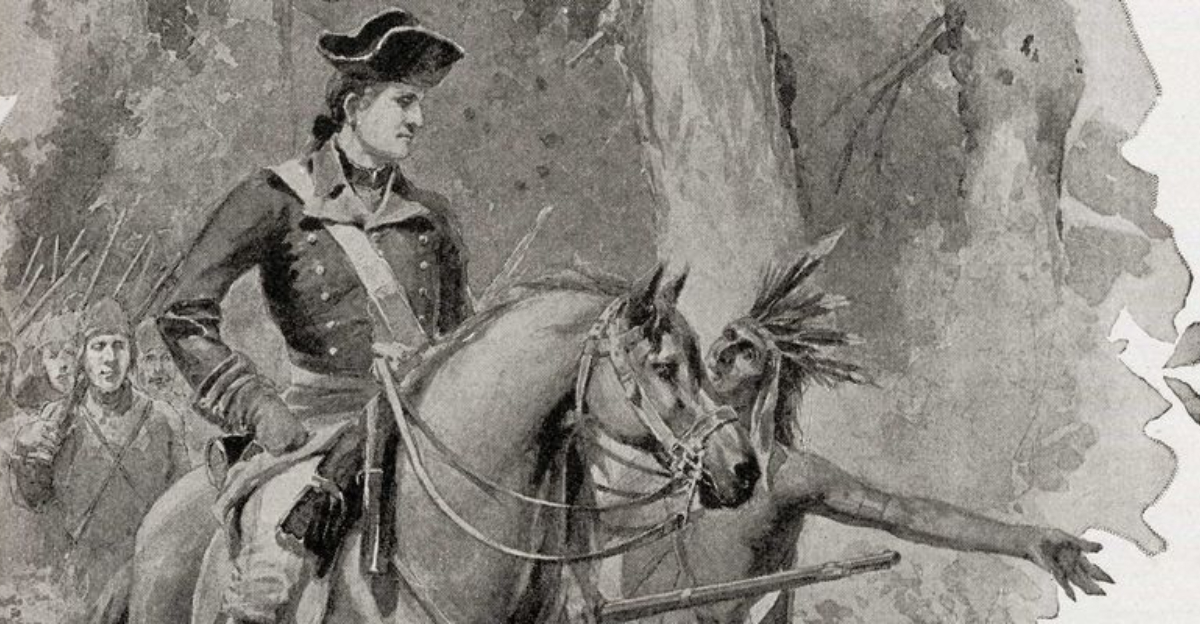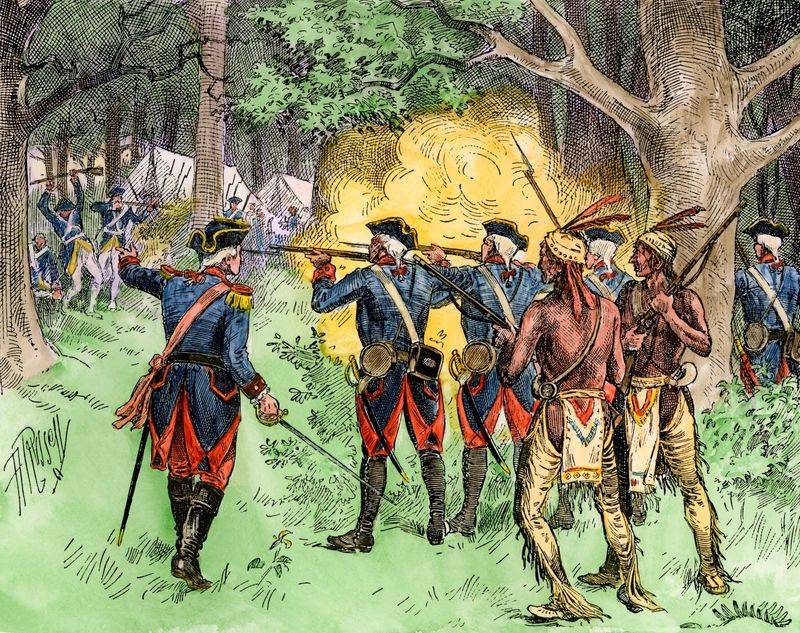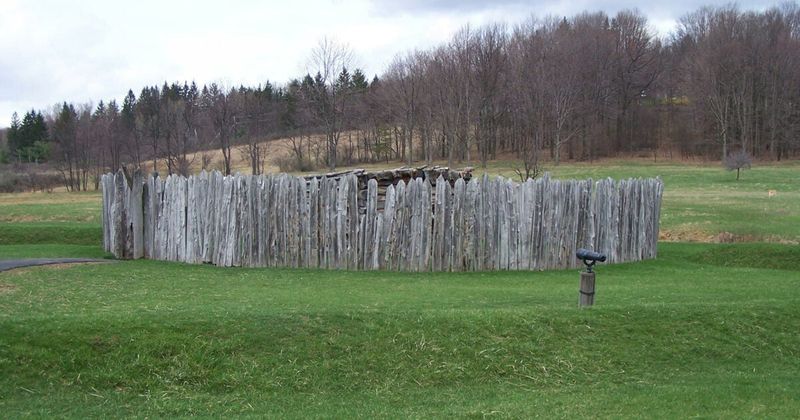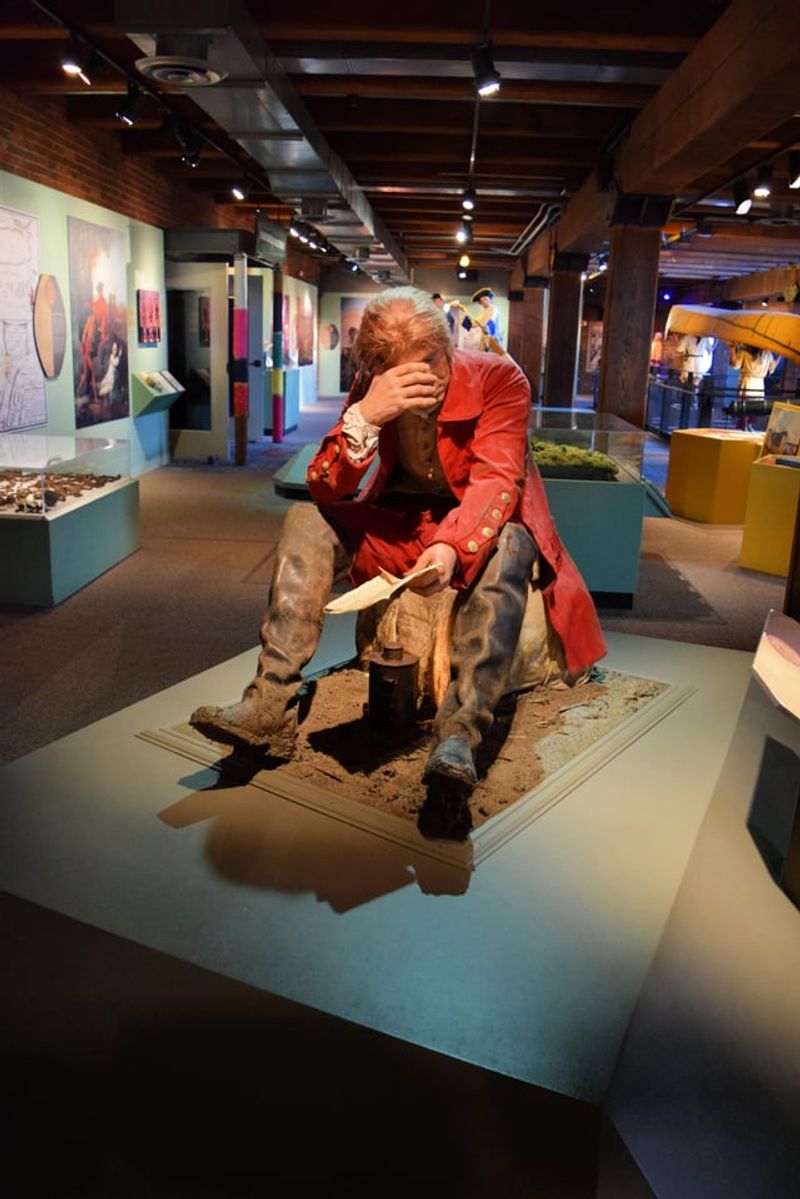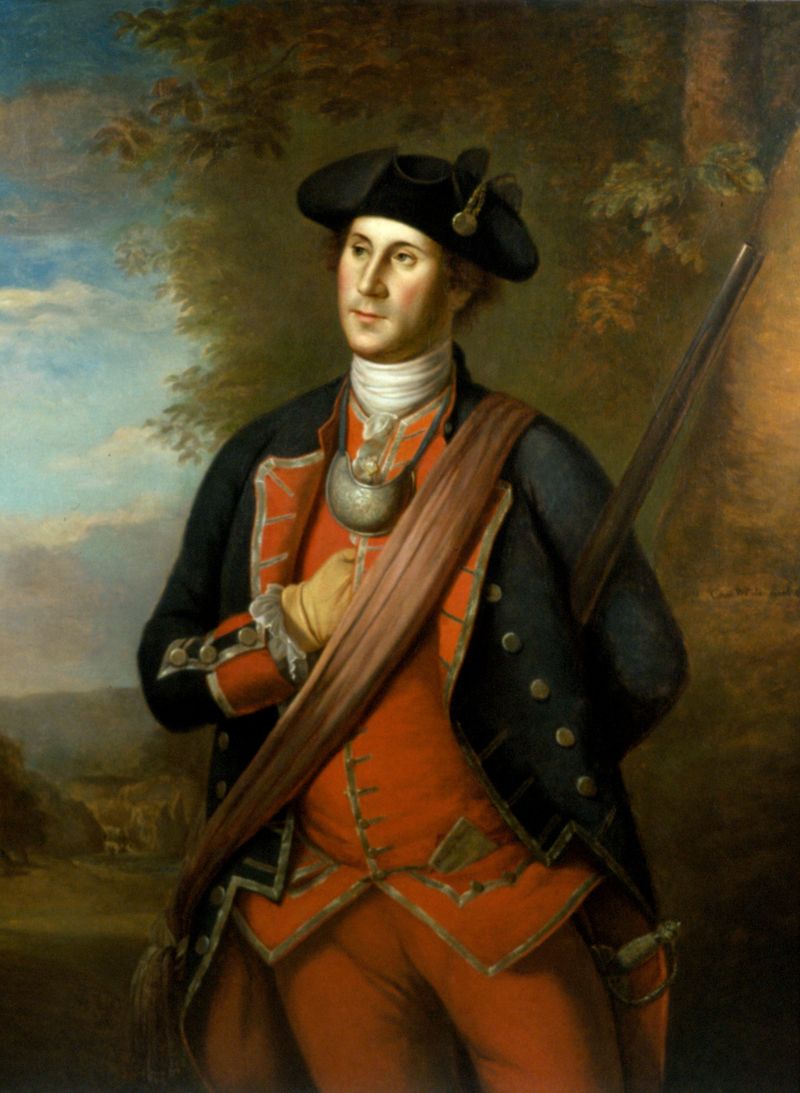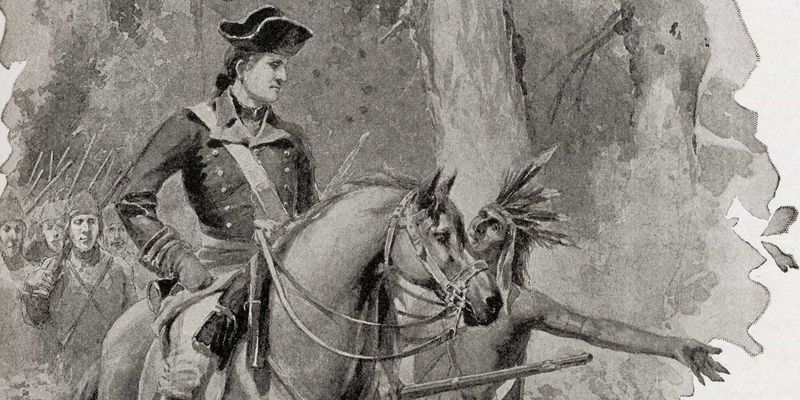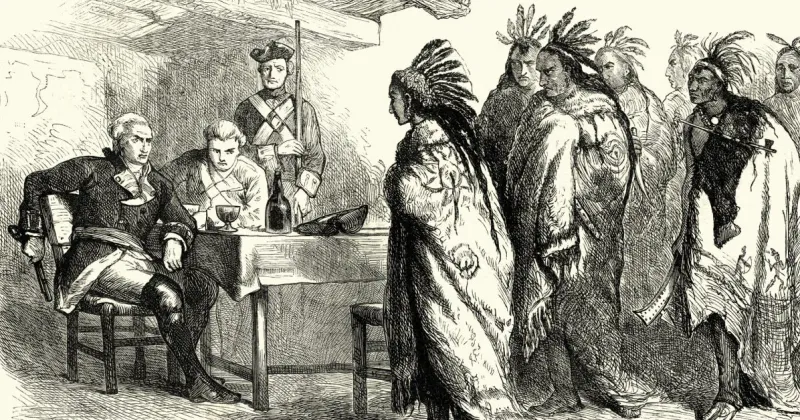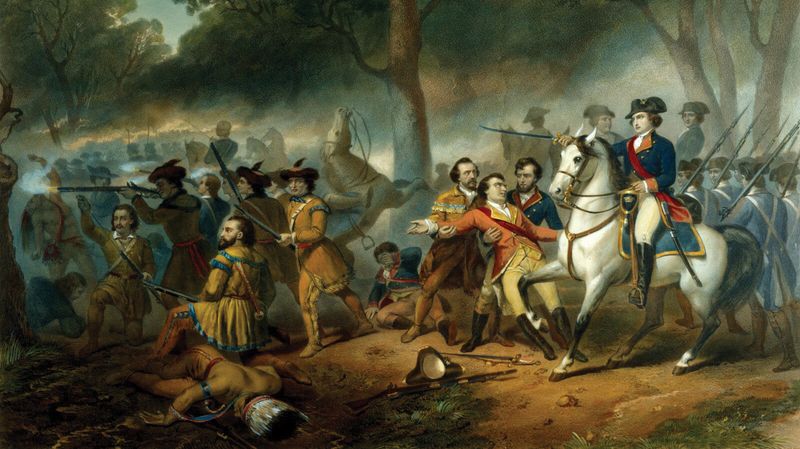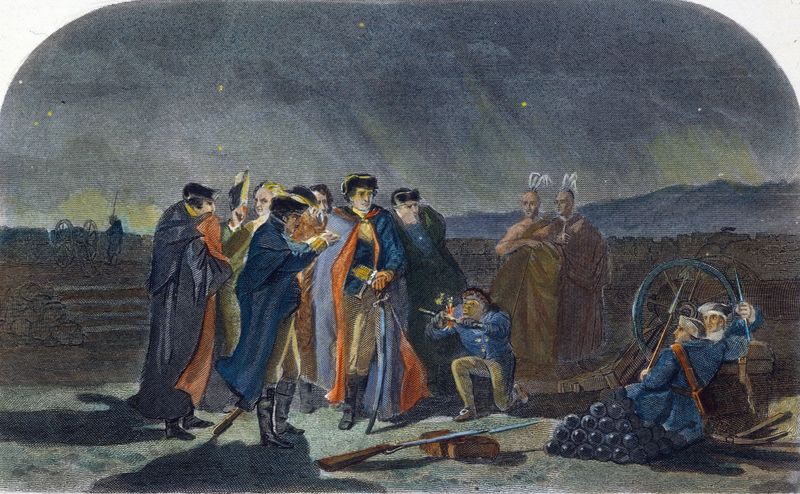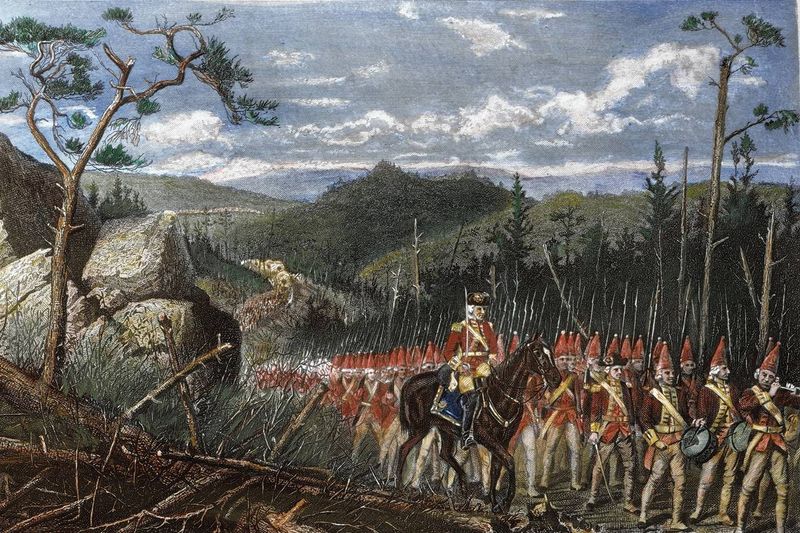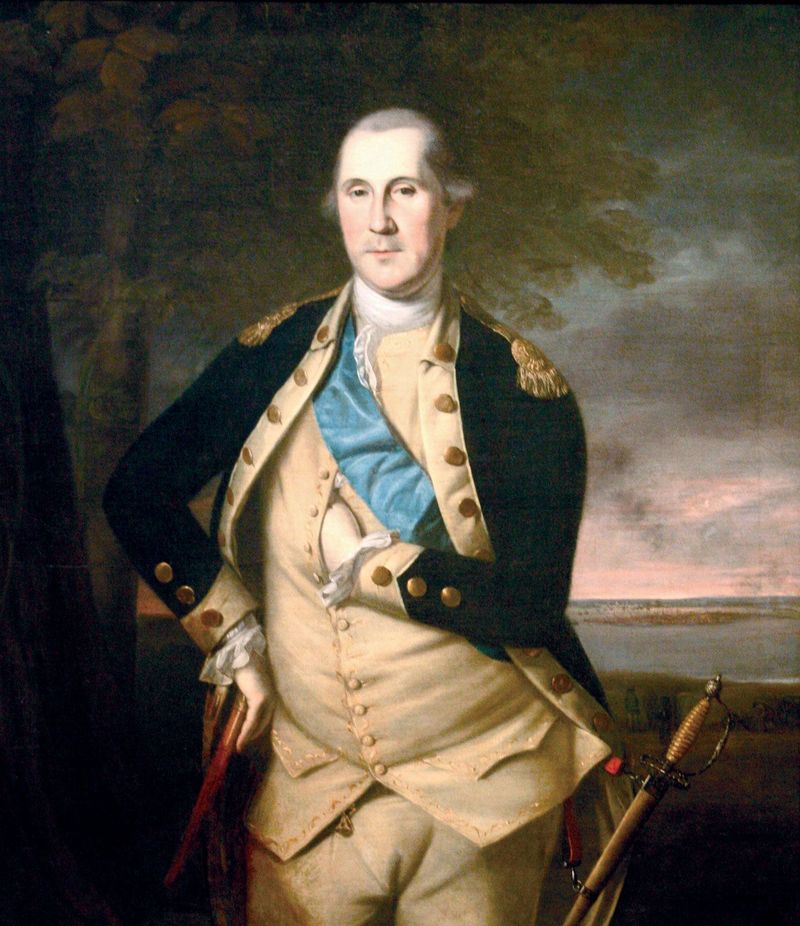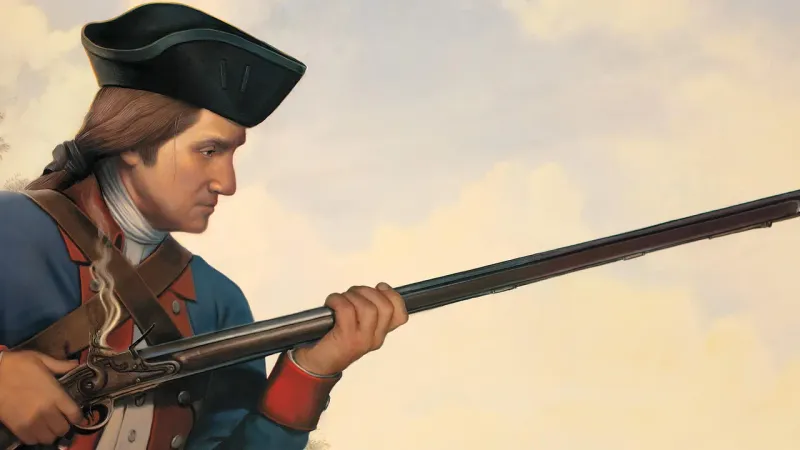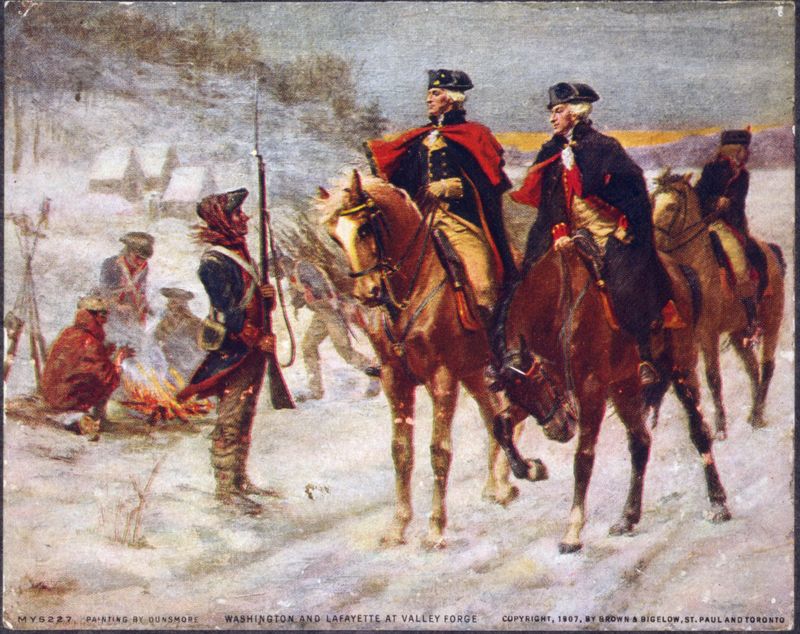Before becoming America’s revered first president, George Washington was a young, inexperienced military commander who made serious tactical errors.
During the French and Indian War, his early military career was marked by blunders that could have changed the course of American history.
These mistakes, however painful, forged the battle-tested leader who would eventually win independence for the colonies.
1. The Jumonville Ambush Disaster
May 1754 marked Washington’s first major military misstep when he ordered an ambush on French forces led by Joseph Coulon de Jumonville. The 22-year-old lieutenant colonel believed he was preventing a French reconnaissance mission.
Instead, he had attacked what may have been a diplomatic envoy. The skirmish ended with Jumonville dead—possibly executed after surrendering—and Washington unwittingly igniting the French and Indian War.
This impulsive action transformed a regional dispute into a global conflict that would eventually spread to Europe, India, and the Caribbean. France immediately branded Washington an assassin, damaging colonial credibility on the world stage.
2. Fort Necessity’s Fatal Location
Following the Jumonville incident, Washington hastily constructed Fort Necessity in a clearing surrounded by hills and dense forest. The location violated basic military principles—enemies could fire down upon the fort while remaining protected by trees.
When French forces arrived with Native allies in July 1754, they simply positioned themselves on higher ground. Rain turned Washington’s fort into a flooded mess, ruining gunpowder and provisions.
The inexperienced commander had essentially built a target rather than a fortress. This strategic blunder forced his first surrender and taught him a harsh lesson about defensive positioning that would influence his later military thinking.
3. The French Surrender Document Fiasco
After the humiliating defeat at Fort Necessity, exhausted and desperate, Washington made a critical error that would haunt his reputation. He signed a surrender document written entirely in French—a language he couldn’t read.
The crafty French included language stating Washington had “assassinated” Jumonville. By signing, he inadvertently confessed to a war crime on an international stage.
This diplomatic blunder provided France with powerful propaganda to justify military action against British colonists. The young commander learned a painful lesson about the importance of translators and careful document review—skills he would meticulously apply during later peace negotiations as commander-in-chief.
4. Wilderness Warfare Ignorance
Washington’s European military training proved dangerously inadequate in the American wilderness. His forces marched in tight formations, wore bright uniforms, and followed conventional battle tactics—making them perfect targets for ambush.
French forces and their Native American allies used the terrain masterfully, firing from behind trees and disappearing into the forest. Washington’s men were repeatedly caught in deadly crossfires with nowhere to take cover.
This failure to adapt to frontier warfare cost countless colonial lives. Only after several bloody defeats did Washington begin developing the guerrilla tactics that would later become his trademark during the Revolutionary War, when he would turn the tables on the British.
5. Youthful Overconfidence
At just 22 years old, Washington’s eagerness to prove himself often clouded his judgment. He frequently dismissed advice from more experienced frontiersmen and Native allies, believing his formal military knowledge superior.
His letters from this period reveal an ambitious young officer desperate for recognition from British superiors. This hunger for glory led to hasty decisions and unnecessary risks.
In one telling incident, he wrote to his brother boasting about bullets whizzing past his head, seeming more concerned with appearing brave than with tactical success. This recklessness would gradually transform into the measured confidence that characterized his later leadership, but not before costly lessons.
6. Native Alliance Failures
Washington struggled to understand Native American diplomatic protocols and alliance-building. He often treated tribal leaders with unintentional disrespect, failing to provide customary gifts or participate in crucial council ceremonies.
His relationship with Tanacharison (the Half King) deteriorated after the Jumonville affair when Washington couldn’t prevent the execution of French prisoners. This violated Native concepts of honorable warfare.
The consequences were severe—tribes increasingly sided with the French, who better respected their customs. By 1755, Washington had lost critical scouts and warriors who understood the terrain. These early diplomatic failures taught him valuable lessons about cross-cultural respect that would serve him well during the Revolution.
7. Rigid Military Thinking
Washington’s early military career revealed a dangerous adherence to British battle doctrine ill-suited for frontier warfare. He insisted on formal battle lines and traditional European tactics despite their repeated failure against more adaptable enemies.
During skirmishes, his men would waste precious moments forming ranks while French-allied forces picked them off from hidden positions. His journals show frustration with enemies who wouldn’t “fight fairly” by European standards.
This mental inflexibility nearly cost him his life multiple times. The transformation from rigid military thinker to the revolutionary leader known for surprise attacks and unconventional warfare required painful defeats that shaped his strategic evolution.
8. Supply Chain Catastrophes
Washington’s early campaigns were plagued by logistical nightmares entirely of his own making. At Fort Necessity, he positioned his forces days away from supply lines without adequate provisions for a prolonged engagement.
His correspondence reveals frantic requests for basic necessities—food, ammunition, even shoes for his men. When rain came, he had no waterproof storage for gunpowder, rendering much of it useless.
Colonial troops often went hungry while French forces remained well-supplied through better-planned routes. These early failures informed Washington’s later obsession with logistics during the Revolutionary War, where his meticulous supply management at Valley Forge would save the Continental Army.
9. The Braddock Expedition Blunder
Though serving as aide-de-camp rather than commander, Washington shares responsibility for the catastrophic Braddock Expedition of 1755. When General Braddock dismissed Washington’s warnings about ambush tactics, the young Virginian failed to press his case effectively.
The result was devastating—over 900 British and colonial troops killed or wounded in one of the worst military disasters of the era. Washington himself had two horses shot from under him and bullet holes in his coat.
While he showed personal bravery in helping organize the retreat, his inability to convince Braddock to adapt to wilderness warfare contributed to the slaughter. This experience taught him the deadly cost of military stubbornness and the importance of terrain adaptation.
10. Colonial Status Miscalculation
Washington’s early military career was driven by a fundamental miscalculation—he believed loyal service would earn him a commission in the British regular army. Despite repeatedly risking his life, he was denied officer status due to his colonial birth.
This blindness to the rigid British class system led him to accept dangerous assignments with inadequate support. His letters reveal growing frustration as less experienced British officers received promotions while his achievements went unrecognized.
Though personally devastating, this rejection planted seeds of resentment toward British authority that would later bloom into revolutionary leadership. His experience with discrimination helped him understand the colonial grievances he would eventually champion.
11. Global Consequences Blindness
When Washington attacked Jumonville’s party, he had no conception of the international firestorm he was igniting. What he viewed as a minor frontier skirmish would escalate into the Seven Years’ War—the first truly global conflict.
His provincial perspective prevented him from understanding how his actions would be perceived in London, Paris, and Madrid. European powers used the incident to justify military campaigns that would reshape colonial boundaries worldwide.
This political naivety nearly derailed his military career before it began. Years later, as president, Washington would become known for careful consideration of international repercussions—a direct result of learning from this early diplomatic catastrophe.
12. Reputation Recovery Struggle
Washington’s early military failures created a reputation problem that nearly ended his career. Colonial newspapers questioned his judgment, while British officers dismissed him as an amateur. His name became associated with defeat rather than victory.
Following the Fort Necessity surrender, he temporarily resigned his commission, his confidence shattered. Governor Dinwiddie’s correspondence reveals serious doubts about Washington’s capabilities.
What saved him was remarkable persistence and a willingness to learn from mistakes. He volunteered for dangerous assignments to rebuild his reputation and studied military texts obsessively. This determination to overcome failure would become his defining characteristic during the Revolutionary War, when all seemed lost at Valley Forge.
